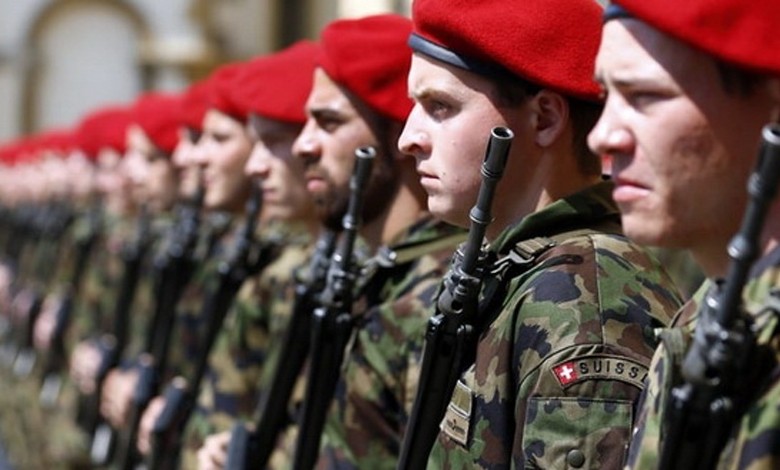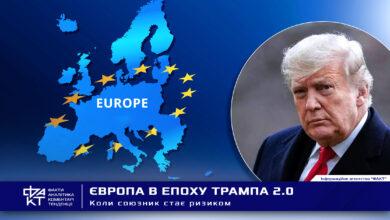Switzerland: The end of the era of neutrality?

Swiss neutrality has long been a proverb in tongues. The country has followed a policy of non-intervention for over 500 years. Among other things, this was facilitated by its good geographical position in the center of Europe, surrounded by great powers.
The beginning of this foreign policy strategy of the mountainous country was its defeat in the Battle of Marignano in 1515. Switzerland’s neutrality was officially recognized at the Congress of Vienna two hundred years later, cementing its status as a neutral state.
Until recently, neutrality contributed to the internal stability and unity of the Confederacy, which consisted of different cultural and linguistic groups. Such a policy of non-involvement in military conflicts allowed the mountainous country to maintain economic ties with its neighbors, maintain peace and stability for many centuries.
If you want peace, prepare for war
Neither the First nor the Second World Wars prompted this island of pacifism to join the world carnage. What prompted Switzerland to think about a change of status and what consequences could this lead to? The obvious trigger was the fact that, by invading Ukraine and continuing to terrorize it for 2.5 years, Moscow called into question the security of all of Europe.
Following the challenge of modernity, Switzerland revised its foreign policy strategy. It is no longer possible to simply stand aside without cooperating with neighbors and partners. After neutral Sweden and Finland joined NATO, Switzerland, which remained in the minority, also began to realize the risks associated with being on the sidelines of history.
This practically means the readiness to surrender one’s country to the death of an aggressor who has encroached on global security. In addition, the position of non-intervention leads not only to financial losses, but also worsens diplomatic relations, political image and status of the Confederation in the world community.
So, at the end of August, the council of experts under the Swiss government made a proposal regarding changes in the country’s foreign policy course. Diplomats, high-ranking officials, and the former commander of the Swiss army conveyed their conclusions to the Minister of Defense. These recommendations should be considered by the Swiss Federal Department of Foreign Affairs, which develops a security strategy, is responsible for the country’s foreign policy and coordinates measures aimed at ensuring the security and protection of Switzerland’s interests in the international arena.
The initiative to review Switzerland’s neutrality has drawn criticism from the Swiss People’s Party and the Green Party. These political forces believe that changing the country’s neutral status could harm its security and isolate Switzerland on the international stage.
On September 4, the Swiss delegation arrived in Luxembourg to meet with representatives of the NATO Support and Procurement Agency. NSPA is NATO’s procurement and supply agency. It is the main service provider for NATO, providing a wide range of integrated capabilities for the Alliance, its member countries and partners. NSPA brings together NATO’s logistics and procurement activities, providing efficient and cost-effective multinational solutions.
The agency works on the principle of “no profit – no loss” and is financed by customers. The main tasks of NSPA are to support NATO operations and exercises, manage the life cycle of weapons systems and coordinate the Central European pipeline system.
The holy place is not empty
It is worth noting that initially Switzerland was firm in its intention to maintain neutrality, which made even the re-export of Swiss weapons impossible. Bern prohibited the re-export of weapons to countries in a state of armed conflict, which also affected sales. Thus, last year, compared to 2022, arms exports from Switzerland decreased by 27%, to less than 746 million euros. In addition, several large deals were concluded in 2022, which significantly increased the volume of exports. In 2023, there were no such big deals.
When Switzerland refused to hand over ammunition for Gepard anti-aircraft guns, it prompted the German concern Rheinmetall to open such a production. Germany signed contracts with this company to resume production of ammunition supplied to Ukraine.
Another aspect of the initiative was an increase in defense spending to 1% of GDP by 2030 (for comparison, this indicator currently stands at 0.76%, except for Iceland, which spends less on defense, although there is already a public debate about combining civil and state protection and strengthening of information security). But even by this indicator, the pacifist country does not catch up with its neighbors, who have raised the bar for spending on the military industry to 2.5% of GDP.
It is worth noting that Switzerland has already decided to participate in two EU projects within the framework of the Permanent Structured Cooperation (PESCO) program. In particular, the country joined the “Military Mobility” and “Cyber Ranges” projects. “Military Mobility” is aimed at simplifying the transportation of military personnel on European territory, and “Cyber Ranges” is aimed at improving international cooperation in the field of cyber defense.
In general, PESCO is an EU initiative to strengthen cooperation in the field of defense and security among the members of the commonwealth. It has been operating since 2017 and includes joint investments in military equipment, research and development. The main goals of PESCO are: increasing the military expenditures of the participating countries, joint development of military potential, reducing dependence on the US in defense matters, as well as improving the coordination and integration of the armed forces of the EU countries.
Make neutrality more flexible
Those who disagree with the new foreign policy initiative consider it unwise to join military blocs like NATO. The moderate political forces of Switzerland will have to make a lot of effort to open the “Overton window” towards militarized Europe, because Switzerland is one of the long-lived democratic countries with a specific mentality.
Times have changed and the policy of neutrality can no longer guarantee security, as it was before. The world is preparing for a global confrontation, and wanting to remain an equal participant in the civilized world, maintaining the position of an outsider will no longer work. If Switzerland does not abandon its neutrality, it should at least make it more flexible. Thus, the policy of flexible neutrality will allow the Confederation to supply weapons to Ukraine through third countries.
Tatyana Morarash




